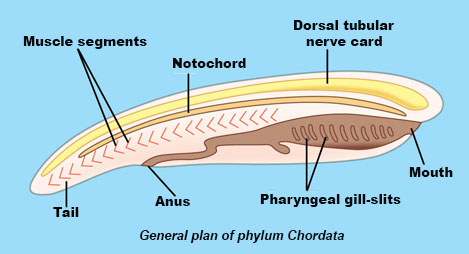
Chordata [kawr-dey-tuh, -dah-] ExamplesWord Origin noun Zoology.
- the phylum comprising the chordates.
Origin of Chordata 1875–80; New Latin, equivalent to chord(a) (see chord1) + Latin -āta, neuter plural of -ātus -ate1 Examples from the Web for chordata Historical Examples of chordata
Perforating gills (of vertebrates and other chordata), 142, 144.
Stories of the Universe: Animal Life
B. Lindsay
Is such an element to be recognized in the head of the Chordata?
The Works of Francis Maitland Balfour, Volume III (of 4)
Francis Maitland Balfour
All the vertebrates are included in a single phylum—Chordata.
Zoology: The Science of Animal Life
Ernest Ingersoll
It may be convenient to shew in a definite way the bearing of the above speculations on the phylogeny of the Chordata.
The Works of Francis Maitland Balfour, Volume III (of 4)
Francis Maitland Balfour
The epiblast in a large number of Chordata arises as a single row of more or less columnar cells.
The Works of Francis Maitland Balfour, Volume III (of 4)
Francis Maitland Balfour
Word Origin and History for chordata Chordata
1880, Modern Latin, from Latin chorda “cord, string” (see cord (n.)) + ending from Vertebrata.
chordata in Medicine Chordata [kôr-dā′tə] n.
- The phylum of animals whose members have a single dorsal nerve cord and a notochord and gill slits during some stage in their development.
 Liberal Dictionary English Dictionary
Liberal Dictionary English Dictionary